The Tree
of Life
2011
Director: Terrence Malick
Starring: Brad Pitt, Jessica Chastain,
Sean Penn, Hunter McCracken
Oh,
Terrence Malick. Malick, Malick,
Malick. With The Tree of Life, you finally
said “FUCK YOU” to the concept of “narrative” that had been plaguing you most
of your career and just did whatever the hell you wanted, didn’t you. No more mucking around with pesky plot when
all you really want to do is shoot pretty pictures.
Tree
of Life is
“about” (yes, the quotation marks are warranted) a boy named Jack (Penn as
grown man in modern times, McCracken as an adolescent in the 1960s) who has a
difficult relationship with his strict father (Pitt). His mother (Chastain), on the other hand, is
all softness and tenderness. Through
this loose set up, we examine the concept of tension throughout all time, the
birth of the universe, the concept of how to live life, and questions of
faith. That is, I think that’s what’s
supposed to be going on.
I
will say this flat out from the start: there is good stuff here in Tree
of Life. There were parts of it
that I found pretty damn awesome. In
fact, for the first half of the two hour plus run time, I was on board with
this movie, prepared to write it a glowing review. But then… then Malick lost me, and he never
really got me back on board.
So. Let’s take these two halves of the film
separately, shall we?
The
first half starts with some non-linear flashbacks of our main character Jack
remembering some stories of his parents, of the death of his brother, and we
meet him as the man he is today. The
only way I can describe the opening introduction of these people is dizzyingly
exciting. The camerawork is amazing,
especially in the early Sean Penn modern sequences. It’s all tall, bright lines, gleaming silver,
and vertigo-inducing spins. I don’t mean
that as a knock; on the contrary, I was enthralled. Sure, there’s little (re: nothing) in the way
of traditional story here, but I actually didn’t care. I’ll repeat that: this section was so
imaginative, I didn’t care I wasn’t being told a regular story. I felt, rather than followed. This was about emotion, not plot, and I was
connecting with the emotion. Sure, I
didn’t know the particulars of Penn’s apparent existential angst, but Malick
was more than able to convince me of it nonetheless with absolutely amazing
photography.
And
then we move into what Chip from Tips From Chip calls “The 50 minute long music
video,” a not unfitting description.
After this initial establishment of the fundamentals (angst-ridden grown
son with father issues, brother who died while young, Jessica Chastain is a
soulful mother, Brad Pitt is a strict father), we go into Malick’s treatise on
the concept of tension throughout the ages, going back to the very origins of
the universe. The film I have heard most
frequently referenced when discussing this section of the film is Kubrick’s 2001:
A Space Odyssey. There are
certainly parallels here, especially when considering the similarities in space
shots (one at the end is basically Malick re-enacting Kubrick) and a focus on
aggression, but that was not the movie I thought of. Instead, I read this segment of the movie as
Malick’s version of Stravinsky’s Rite of Spring segment from Fantasia. In both of these, we move from the formation of
the universe to the formation of the planets to the appearance of the oceans
and single celled organisms, even dinosaur sequences and the destruction of the
dinosaurs. While the Fantasia
segment is easily more brash and audacious while Malick’s version is more soft
and contemplative, they share a great deal in common. After this pretty darn fantastic series of
scenes, Malick then does a fast-forward to the mother and father of the opening
as we watch them establish their family.
This is still in what I call “the first half” of the film, and it is
absolutely full of joy. We get snapshots
of Jack’s early life as a baby and a toddler, scenes of his life with his
mother, of playing with blocks and no small amount of billowing window curtains
(I think Malick must have wet dreams about billowing window curtains, he loves
them so much in his films). Just like
the opening, this is not really about characters or stories but about emotions,
the love and openness of family and childhood.
And although the jump from the destruction of the dinosaurs to Jack’s
early childhood is certainly a pretty big leap, chronologically speaking, I
accepted it. The film was still working
for me.
Until
we get to what looks like thirteen year old Jack.
And
then we move into the second half.
How
long does Malick need to convince me that Jack hates his dad? Because holy fuck on a stick, I GET IT. JACK HATES HIS DAD. You don’t need over an hour of tiresome,
repetitive, and not at all magical or glorious segments to make me understand
this. The second half of the film loses
nearly everything that made the first half special and interesting. I do think, as I said before, that this is a
film more about certain emotions than a definitive story, which is why,
perhaps, the portion of the film that is most clearly story-driven worked so
incredibly little for me. I actually
wish that Malick had cut off the film after the first half, making instead an
odd little movie that’s just over an hour long that has modern building shots,
sixties-era neighborhood shots, and dinosaurs.
Because that would have been way better.
The
second half drags on interminably. The
message that Malick is trying to say is that Brad Pitt is kind of a shitty dad
despite the fact that he thinks he’s being a good dad. Over and over again. Beating you over the head. I just… OMG MALICK I GET IT. I FUCKING GET IT. And it’s not nearly as profound as you think
it is. Boy hates dad. Dad is mean to family due to a variety of
reasons.
Who
the hell cares.
Not
me.
See,
I’m not even capable of intelligently tearing down this second half of the
movie because it pissed me off so much.
And
then there’s the ending of the film. The
whole “Bad Dad” story wraps up, and I thought to myself, “hey this feels like
the end of the movie, this would make a nice end.” But then it wasn’t. There was more. And I thought again, “hey, THIS feels like a
good end of the movie.” But then it
wasn’t. There was still more. And now I was thinking, “OK, this feels
weird, but I guess it COULD BE the end of the movie.”
And
then it wasn’t.
By
the time Malick actually got around to REALLY finishing the film, I was foaming
at the mouth. END THIS GODDMAN THING
ALREADY. The second half of the movie
was so stale that Malick’s attempt to recapture the magic of the imagery of the
first half fell completely flat. It felt
pretentious and self-indulgent and utterly stupid. Which is interesting, because I suppose it
wasn’t nearly so different from the stuff at the opening of the film, yet I was
much more accepting of Malick’s “high art” style at the beginning of the movie
than I was at the end. He had overdrawn
his account, and I was no longer tolerant.
I saw this at the Dryden, so I was in a movie theater, and I was so
fucking ready to leave, I couldn’t wait for the final fade-to-black. I practically ran out of the theater to my
car. And that’s not good.
There
were, however, two aspects of the film that were superb from start to
finish. The cinematography throughout is
just stunning. Frankly, I’ve come to
expect that of Malick, so it wasn’t really a surprise, more a
confirmation. Malick makes damn pretty
movies, and Tree of Life is no exception.
He can make anything look good, be it volcano sequences, CGI dinos, DDT
smoke, or the twilight hours of neighborhood playing. The other aspect of the film that was
excellent was the soundtrack. I honestly
cannot think of a better classical music soundtrack than that which he uses in Tree
of Life. Every piece feels perfect,
absolutely perfect. Every piece smartly
underscores a very particular emotion, and as this is a film about emotion, not
plot, that’s necessary. I LOVED the
soundtrack. I honestly can’t remember
the last time I was so impressed with a classical music soundtrack. I want to own it, and I rarely want to
purchase a film’s soundtrack. It was
perfect. It was sublime. It was heavenly. Malick furthers his comparison with 2001
in this respect; Kubrick was Da Bomb in terms of being able to uncannily pick the
perfect piece to accompany his films, and Malick, with Tree of Life, is the only
other director I’ve seen who comes close to Kubrick’s skill in this
respect. Given the little Kubrick
fangirl that I am, that is high praise.
It’s
hard for me to decide where to come down on The Tree of Life, really
hard. The first half is very good. Not for everyone, not at all, but it worked
for me. The second half was tedious and,
by the end, infuriating. Where do I
land, then, on a movie that I myself am so split on? Right in the middle, I guess.
Arbitrary
Rating: 6/10. OK, it’s not right in the
middle – the strong first half, soundtrack, and cinematography bolster up the
utterly inane second half to a passing score.
Recommended only for the self-avowed cinephile, and even then, with some
reservations.
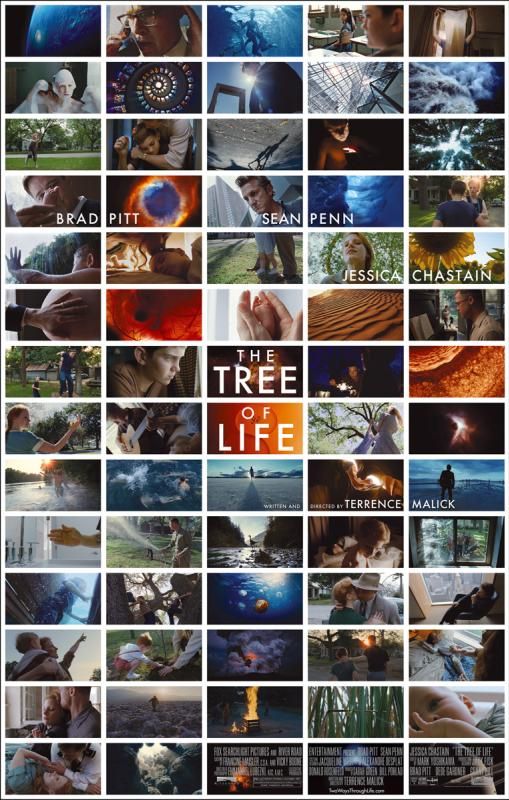
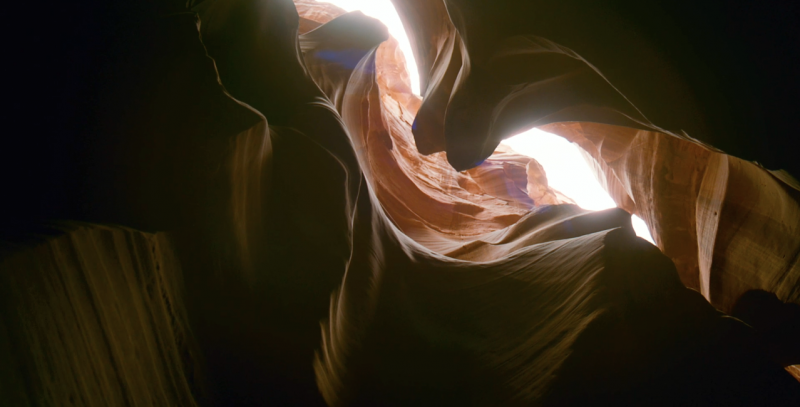
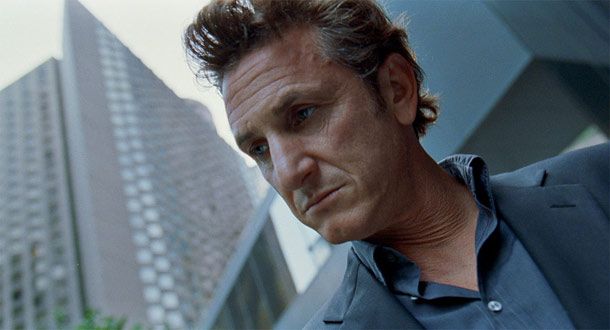
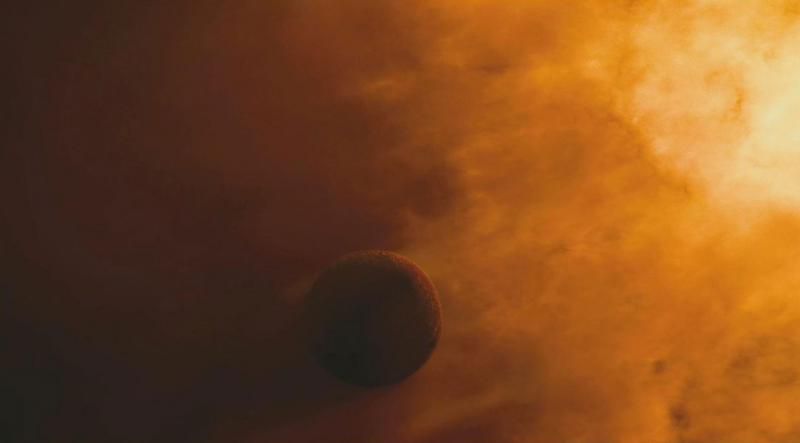
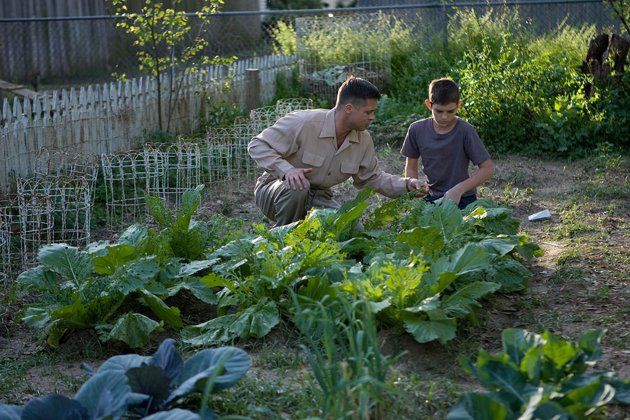
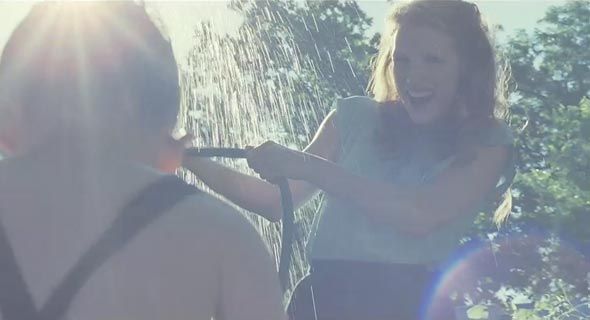
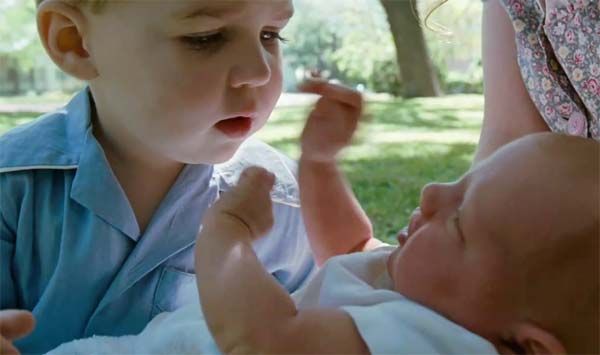
I like this one more than you did. I think I was probably equally confused by it, but it's so damn pretty. It's also really self-indulgent.
ReplyDeleteWhat I got from it is that Malick is setting up a dichotomy between a cold, unfeeling, callous Nature (the father) and a warm, empathetic, feeling state of grace (the mother). My issue with this is that I think it's a false dichotomy, and Malick is leaving out a lot of possibilities so that he can present a simplistic argument in a very complicated way. Pretty pictures make up for a lot, but not simplified, shitty philosophy.
I did make the connection to 2001, but I like your connection with Fantasia as well. The other film I found a parallel with is Koyanisqaatsi.
No, I definitely got that message of "Grace" versus, what did he call it, well, for lack of a better word, "selfishness."
DeletePROBLEM IS, I GOT HIS MESSAGE WELL ENOUGH AND DIDN'T NEED HIM REPEATING IT OVER AND OVER AND OVER AND OVER AND OVER AND OVER AGAIN BASHING ME OVER MY HEAD WITH IT IN THE SECOND HALF OF THE FILM.
Sorry. The second half of the movie did that to me.
It's definitely a very black and white message, which is odd, considering the grown Sean Penn character seems more gray-area ambiguous than his childhood recollections.
Oooh, definitely elements of Koyaanisqatsi here. And definitely very pretty.
I disliked this movie as a whole. I was already looking at how much time had passed during the music video section, so I was at your point about ending it far before you were. Having said that, I did go back and watch about 10 minutes of the video part again once it was over. I would have given this film the Oscar for Cinematography, but that's the only good thing I have to say about it. It's 20 minutes of plot stretched over 2 hours and 20 minutes of movie. It's got a collection of pretty images in it, but a collection of pretty images does not a movie make.
ReplyDeleteYou absolutely HAVE to read this short, fake script that someone wrote for the film: http://www.the-editing-room.com/the-tree-of-life.html
Oh man, that script is great. And kind of sad. Because it's true.
DeleteMy favorite bit from it:
"HUNTER MCCRAKEN
(whispering)
I will like you more now. But only because it's convenient."
I honestly think that Malick should just turn into Herzog and go around making documentaries about all the pretty nature places he likes so that he can have his movie of just gorgeous images.
Kubrick's spaceships are perhaps little more than Airfix models, but he makes them majestic, even awesome in the proper sense of the word.
ReplyDelete